Medicare Plans in Hawaii
Whether you’re newly qualified or have been enrolled for a while, sorting through the Medicare plans in Hawaii can be time consuming. We don’t think it has to be! Hawaiians have Medicare options to choose from and we’re here to help you find the right coverage for your needs.
Who’s eligible for a Medicare Plans in Hawaii?
Medicare is a federal program that provides health care benefits to those who qualify by either age or disability. Most people are first eligible for Medicare plans in Hawaii once they reach 65 years of age. If you’re younger than 65, you can also qualify for Medicare if you have Amyotrophic Lateral Sclerosis (ALS) or End-Stage Renal Disease (ESRD), or if you’ve been receiving Social Security Disability Insurance (SSDI) for 24 months.
In order to qualify, you must be a US citizen or permanent resident, having lived in the US for the past 5 years. Additionally, you or your spouse must have worked for 10 years in a job that contributed to Medicare through Social Security deductions.
We can help you determine your eligibility and options. Speak with a licensed insurance agent now by calling the number above.

What are the Medicare Plans in Hawaii?
Orginial Medicare Part A & Part B
Original Medicare is the governmental part of Medicare, which is split into two parts:
Part A (Hospital Insurance) covers inpatient services, like hospital care, skilled nursing facility care, hospice care, and nursing home care (as long as custodial care isn’t the only care needed).
Part B (Medical Insurance) covers outpatient healthcare needed to treat your medical condition. Services and supplies covered by Part B include: mental health care, ambulance services, and durable medical equipment (walkers, canes, blood sugar monitors, etc.) Part B also covers some preventive care, like flu shots, cardiovascular screenings, and diabetes screenings.
It’s important to note that Original Medicare doesn’t cover everything. For example, Original Medicare typically does not cover prescription drugs, hearing exams and hearing aids, long term care (i.e. care received at a nursing home), vision, or dental care. For this reason, Medicare plans available through private insurers so that you get coverage you want.
Medicare Advantage Plans (Part C)
Private insurance companies, approved by Medicare, offer Medicare Advantage plans that work as an alternative to Original Medicare Part A and B coverage. These plans must provide the same coverage as Original Medicare and can also include additional benefits, like dental, vision, and prescription drug coverage. Medicare Advantage plans with prescription drug benefits are called Medicare Advantage Prescription Drug (MAPD) plans.
You must first be enrolled in both parts of Original Medicare(Parts A and B) to enroll in a Medicare Advantage plan. If enrolled in Part C, you will continue paying your Part B premium in addition to the Medicare Advantage plan premium.
For more information about Medicare Advantage plans, click here.
Medicare Prescription Drug Plans (Part D)
Prescription drugs are not covered by Original Medicare (Parts A and B) or Medigap plans. Stand-alone Medicare Prescription Drug plans work together with your Original Medicare to cover prescribed medications. These plans, provided by Medicare-approved private insurance companies, assign medications into tiers, each tier with a certain copay/coinsurance. A drug formulary is provided with these plans, so you can check the drug tier of your medications before picking a plan. This allows you to find the plan that will best fit your prescription needs. Medicare Part D plans can help offset the costs of prescription drugs, making treatment more affordable.
You can also get Medicare Part D coverage through a Medicare Advantage plan that includes drug benefits, also known as a Medicare Advantage Prescription Drug Plan (MAPD).
Different insurers offer different types of plans, so your monthly plan premium and out-of-pocket expenses for prescription drugs will vary from plan to plan. Any beneficiary who is eligible for Original Medicare, Part A and/or Part B, and is a permanent resident of the Medicare Prescription Drug Plan service area, can sign-up for Medicare Part D. Medicare Prescription Drug coverage is optional, but if you don’t enroll in Part D as soon as you’re eligible, you might pay a late-enrollment penalty if you enroll later.
For more information about Medicare Prescription Drug plans, click here.
Medicare Supplement Plans (Medigap)
Medicare Supplement plans are intended to fill in some of the coverage gaps left by Original Medicare to provide more comprehensive coverage. Medigap plans are provided by Medicare-approved private insurance companies and work alongside Original Medicare Parts A and B. These plans can help minimize out-of-pocket costs by helping pay for things like coinsurance, copays, and deductibles.
For more information about Medicare Supplement plans, click here.
When Can I Enroll In A Plan?
Medicare Advantage and Medicare Prescription Drug Plans
You are first eligible to enroll in Medicare plans in Hawaii during your Initial Enrollment Period (IEP). Your IEP starts three months before the month of your 65th birthday and continues through the following three months. This means you have a total of seven months to enroll.
You will then be able to modify your Medicare Advantage or Medicare Prescription Drug coverage during the Annual Election Period (AEP). This period runs from October 15th to December 7th each year.
Medicare Initial Enrollment Period

7-Month Initial Enrollment Period | Begins 3 months before the month you turn 65
*Signing up for Parts A and B during months 5,6, and 7 may result in delayed coverage.
KEY FACT: The General Enrollment Period provides you an opportunity to enroll in Original Medicare if you missed your IEP. This period occurs every year from January 1st to March 31st. Then, you’ll have an opportunity to select a Medicare Advantage Plan from April 1st through June 30th.
Additional Medicare Resources in Hawaii
Hawaii’s Health Insurance Assistance Program (SHIP) provides free, confidential counseling and community education for Medicare beneficiaries, their representatives, and persons who will be eligible for Medicare.
The Medicare Savings Program in Hawaii is available to Medicare beneficiaries whose income falls below a certain level to help pay for Medical expenses, like premiums and deductibles.
Sources: Medicare.gov; hawaii.gov
